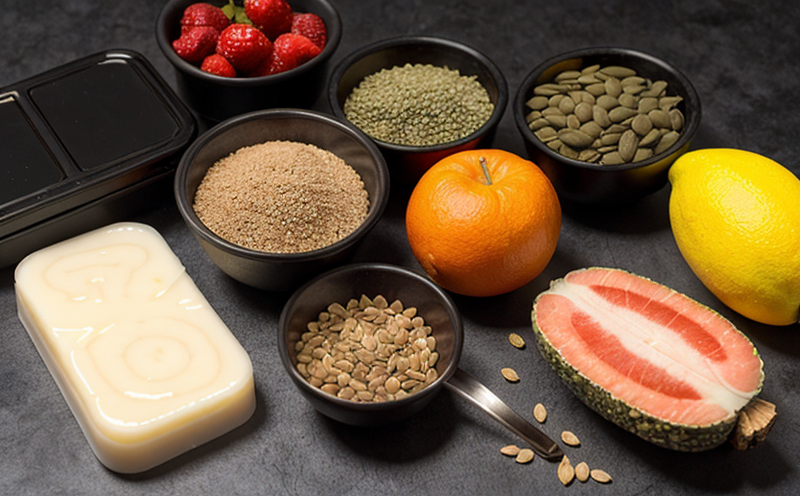ISO 25943 Determination of Starch Content in Animal Feed by Enzymatic Method
The ISO 25943 standard specifies a precise enzymatic method for the determination of starch content in animal feed. This service is crucial for ensuring that manufactured feeds meet nutritional and regulatory requirements, thereby supporting the health and well-being of animals during their production cycle.
Starch plays a significant role in the nutritional composition of animal feeds as it provides essential energy sources. Accurate measurement of starch ensures that the formulated feeds are optimized for performance and health benefits. This enzymatic method is particularly advantageous because it minimizes interference from other components such as fiber, proteins, and fats.
The process involves several steps: initially, the sample is prepared by grinding and homogenizing to ensure consistent particle size. The starch extraction step follows this, where enzymes are used to hydrolyze non-starch polysaccharides into simpler sugars. This allows for a more accurate measurement of pure starch content. The liberated glucose from the enzymatic digestion is then quantified using a colorimetric assay.
The accuracy and precision of this method make it suitable for quality assurance in feed manufacturing, ensuring that the products meet the nutritional demands specified by animal species. Compliance with international standards such as ISO 25943 guarantees reliability across different markets and jurisdictions.
This enzymatic approach is not only reliable but also environmentally friendly compared to other methods like Soxhlet extraction or near-infrared spectroscopy, which may require harsh chemicals or complex instrumentation. The simplicity of the method makes it accessible for quality managers and R&D engineers involved in feed formulation.
Incorporating this service into a comprehensive quality assurance program helps ensure that animal feeds are safe, effective, and meet regulatory requirements. This is particularly important given the increasing demand for high-quality animal products in global markets. Compliance with ISO standards enhances consumer confidence and supports sustainable agricultural practices.
For quality managers and compliance officers, understanding the nuances of this method can be crucial for ensuring that feed formulations are optimized for performance. For R&D engineers, this enzymatic approach offers a robust tool for developing new feed formulations tailored to specific animal needs. Procurement teams benefit from this service by ensuring that they source high-quality feeds that meet stringent nutritional criteria.
The ISO 25943 method is part of a broader suite of analytical services available at Eurolab, which includes microbiological testing and residue analysis. Together, these services provide a comprehensive solution for food & feed safety assurance.
Benefits
- Enhanced Feed Quality: Ensures that animal feeds are rich in essential nutrients, particularly starch, which is vital for energy provision.
- Regulatory Compliance: Meets international standards such as ISO 25943, ensuring compliance with global regulations on feed safety and quality.
- Improved Animal Health: Optimized nutritional content leads to better health outcomes for the animals consuming these feeds.
- Sustainability: The method minimizes waste and resource usage, contributing positively to environmental sustainability initiatives.
The ability to accurately determine starch content is pivotal in formulating high-quality animal feeds. This service not only supports the immediate needs of feed manufacturers but also contributes to broader agricultural and environmental goals.
Eurolab Advantages
At Eurolab, we pride ourselves on providing top-tier analytical services backed by decades of experience in food & feed testing. Our dedicated team of experts ensures that every sample undergoes rigorous quality control processes to deliver accurate and reliable results.
We utilize state-of-the-art instrumentation and follow strict protocols to ensure the precision required for ISO 25943 compliance. Our laboratories are accredited to multiple international standards, providing you with confidence in our services. Eurolab's commitment to excellence is reflected in the accuracy of our data, which can be trusted for regulatory submissions and internal quality control.
Our experienced staff includes chemists specializing in food analysis, ensuring that each test is conducted by knowledgeable professionals who understand the nuances of starch content determination. This expertise translates into faster turnaround times while maintaining high standards.
We also offer additional services such as mycotoxin testing and residue analysis, which complement the starch content determination service. Together, these offerings provide a comprehensive suite of analyses that cater to the diverse needs of our clients in the food & feed industry.





